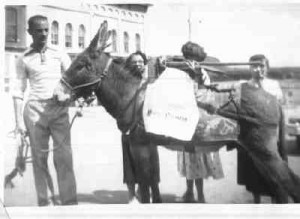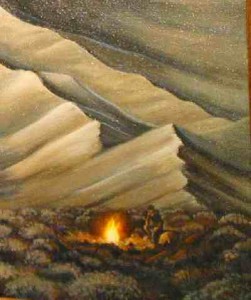Brief by Central Staff
History – July 2004 – Colorado Central Magazine
Two companies with pioneer Leadville roots were in the news recently, with one agreeing to purchase the other. Both are department store chains; and neither currently operates in Central Colorado.
On June 9, the May Co., headquartered in St. Louis, agreed to purchase the Marshall Field chain for $3.24 billion from Target.
The May Co. traces back to David May, a German who emigrated to the United States in 1863 to work for an uncle who sold clothes in Cincinnati. He did well, but contracted tuberculosis, and the doctor told him that relief could come from the high, dry climate of Colorado.
May settled in Manitou Springs, and in 1877 ventured to Twin Lakes on a fishing trip with some Midwestern dry-goods merchants who were passing through. Hearing of the business opportunities in nearby Leadville, May went to the Cloud City, where he tried prospecting with a partner, Jake Holcomb. They didn’t find any silver, so they tried the dry-goods trade.
Their new store featured the riveted denim overalls from Levi Strauss, and they also sold red long-johns: “Pure medicated scarlet wool undershirts and drawers.”
May wanted to expand, but Holcomb was cautious, so on Jan. 1, 1878, May opened his own Great Western Auction House and Clothing Store on Harrison Avenue. In 1879, he helped found the Hebrew Benevolent Association in Leadville, and as a Republican, he was elected Lake County Treasurer in 1881 and 1883. May began opening stores elsewhere in Colorado, and the May Co. eventually grew to a multi-state firm.
Marshall Field likewise built a chain of department stores, but his base was Chicago. Field, however, was one of the dry-goods merchants who accompanied May to Twin Lakes and Leadville in 1877, and Field knew a promising investment when he saw one.
Born in 1834 in Conway, Mass., Field eventually moved to Chicago and became a partner in Field, Palmer & Leiter. After his Leadville trip, Field returned to Chicago, where he told one of his partners, Levi Leiter, about the Leadville silver boom. Leiter soon invested in ditch and mining companies — by buying out the interests of William H. Stevens, one of the discoverers of Leadville’s silver deposits.
Field waited to invest, but in 1878 he was one of Horace Tabor’s partners in the purchase of the Chrysolite, Vulture, and nearby mines. They were profitable for a time, paying large dividends, but troubles appeared in 1880, and Tabor was accused of “insider trading” — that is, Tabor told the public that everything was rosy, then sold his stock, when he was in a position to know that the mine was running out of ore.
Whether Field was also involved at that stage seems lost to history. But he and his dry-goods partner Leiter did make some money from Leadville, and Field went on to run what was once the largest dry-goods firm in the country, and to endow a Chicago museum.


